#good thing i have resources for accuracy
Text
I know very little about Star Wars. But I'm going to write a gay Kylo Ren fanfiction anyways. And yes – Matt the Radar Technician will be making an appearance.
#little moth's page#little moth's blog#good thing i have resources for accuracy#if it isn't ig ill just mark it as au or crack lmao#star wars#fanfiction#fic#kylo ren#matt the radar technician
8 notes
·
View notes
Note
I'm curious to know how you mastered anatomy? I mean, look at the subtle shadows around Roy's shoulder or the details along Staeve's arms or even the ups and creases on Astarion's face, I am truly amazed and see it and it makes your art style so good but I can't understand how you do that...
I know I lack that specific little details in my own art style but idk how to comprehend it, so did you actually study anatomy? Or did you like, vibe around? Or try to feel and visualize while drawing what the body feels like?
Amazing amazing artist you are mate, love you for sharing this with us!
It's honestly just been a matter of actively trying/learning to recognise muscle groups and joints over the years (plus a lot of my biggest artstyle inspirations are HEAVY on anatomical lines and accuracy). Also, as I've mentioned a bunch of times, I've always been involved or interested in high performance sports, acrobatics in particular, which made me pay a lot of attention to people's bodies from very early on (in a purely artistic way lmao)
These days a lot of it comes intuitively, but if I'm ever struggling or need a fullbody/more dynamic pose my first step is to outline the muscles in the sketch to see if anything's out of place. To aid me in this I sometimes have écorché (skinless) references either as pictures or in 3D. This sort of thing:
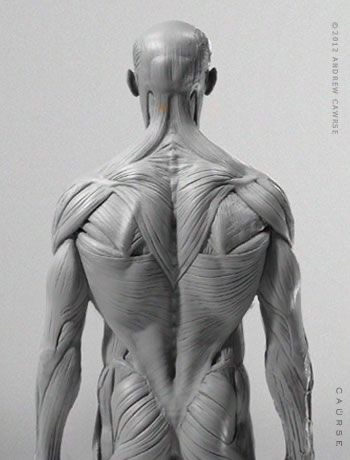
There's a lot of online resources for this as well! I personally love this one
In my head things get converted to a puzzle of sorts, kinda like what these study notes look like (not mine, artist handle in the pictures):
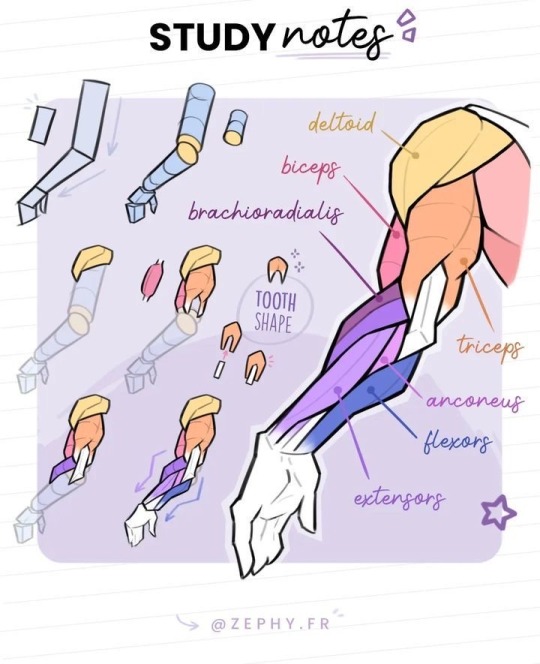
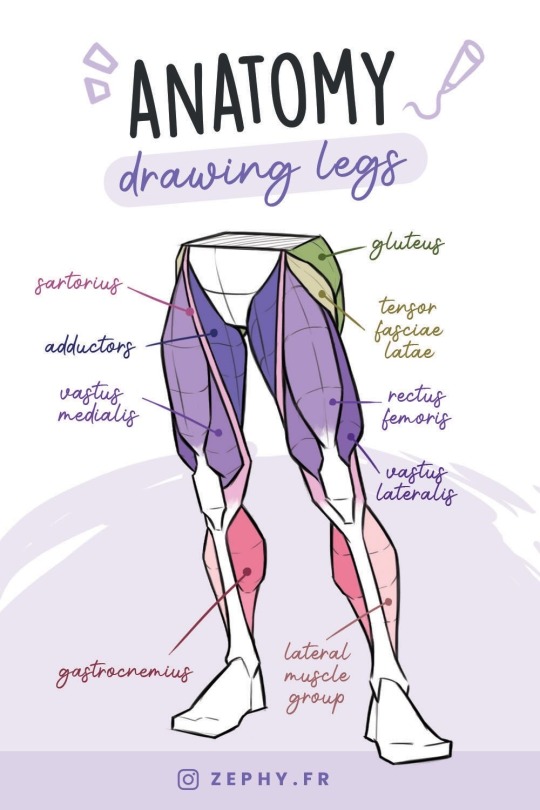
And then it's a matter of weighing in how thick a character's skin is (indicator of a bunch of things including age) and what the fat-muscle ratio looks like, to decide which structural lines stay and which ones go or become less prominent.
And yes this also explains why I have so many fit/lean characters. I get a kick out of drawing muscle groups lmao
All that being said! I'm still very far from my anatomy goals haha it's a work in process for all of us. Hope this helps!
614 notes
·
View notes
Note
Hiii I’m so sorry to bother you!, hope your day goes well <3 I just want to ask, how can I improve in maths? I’m preparing myself for the sat and I have trouble with understanding it. Any tips would be very much appreciated, thanku !! ♡
Become a Math Whiz: Acing Math Class & the SAT 📈✏️📚👩🏫
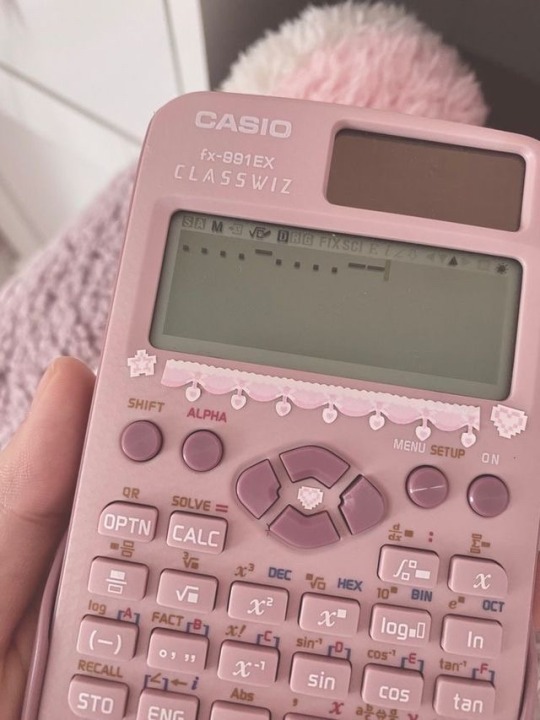
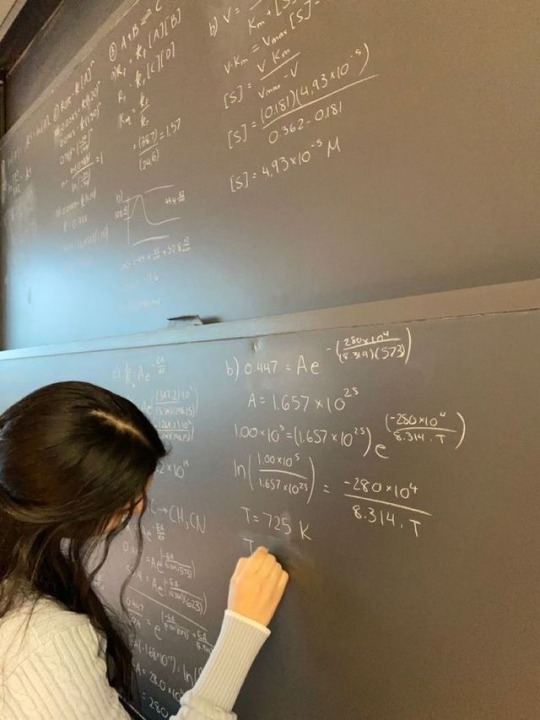
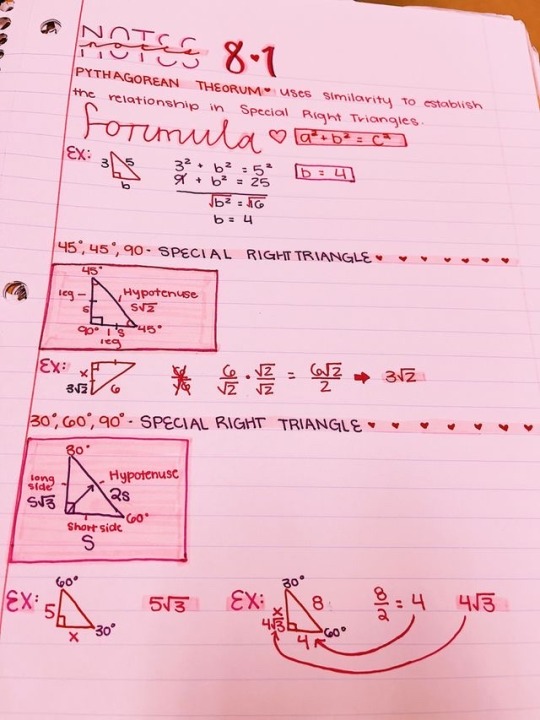
ty for the ask & the kind words! you are never a bother, i'm happy to help 🥰 i can def give some tips as someone who went from struggling w/ math to being good at it. and i’ve taken the SAT so i know that experience as well! i hope this helps 💗
take accountability
it’s very easy to try to shift blame & avoid taking responsibility for your grades/ performance. i used to think things like “the teacher is just bad!” or “i’m just not a math person!” but this mindset is just deflecting. some things are out of your control, like what teacher you have or preferring other subjects, but you have to step up & work hard to create your own success! remembering this will help you stay motivated and disciplined.
find your learning style
i talked about this in a previous post too, but there are different styles of learning - visual, auditory, hands-on, & reading/writing - and not all of them work for everyone. if you spend a ton of time studying and don’t see improvement or results, that’s a big sign that you’re studying wrong. a method that works for your friend or that your teacher uses might not actually be effective for you. so do some research into learning styles and study methods, and find implement strategies that work for you.
never fall behind
okay, easier said than done. but one of the biggest reasons i used to struggle is math is that i would get stuck on a concept, never fully master it, and then i’d stay behind. in math, a lot of topics build on each other. if you get stuck on a topic, it’s crucial that you figure it out asap or your confusion will snowball. you can’t build a solid structure on top of a wobbly foundation. the moment you encounter a problem area, study it until you’ve completely understood.
practice makes perfect
i try to steer clear of recommending specific study methods b/c everyone has different learning styles. but math is so dependent on problem solving & applications that you really have to master this skill in order to succeed. beyond just reviewing your notes & reading over concepts, you need to practice applying topics by solving problems. do the homework questions & do them for accuracy, even if it’s just graded for completion. find extra problems in the textbook, workbook, online, etc. redo questions from class or the hw that confused you until you can do them correctly without your notes. drill it until you can solve them AND understand how the steps work!
ask for help
i am clearly a big proponent of asking for help. in school, your teachers are gonna be one of the best resources you have. for one, they’re teachers for a reason, so even if you think they’re not too great at explaining stuff, they know the concepts. and besides that, your teachers the ones who are creating units, assigning your work, writing & grading your tests... they should be your go-to for questions. visit them during office hours or email to set up a meeting where you can discuss concepts. ask for extra practice problems, ask them to look over your work & let you know how it looks, talk through your work with them. aside from teachers, you can get help from a tutor, a classmate, whoever you can turn to. but pls don’t suffer alone! succeeding with help is still succeeding.
use the internet
so maybe your teacher truly sucks at explaining. maybe you don’t have classmates to help and can’t afford a tutor. or maybe you just wanna supplement your learning another way. i really really recommend utilizing free learning tools online!! khan academy is an obvious one for videos, practice problems, and more. you can also find tons of youtube videos explaining math topics. sometimes it helps to hear things explained another way. i also google “[math concept] practice problems” if i want extra questions to work through.
bonus: tips for SAT math
the SAT is a bit different b/c the math concepts aren’t actually too advanced. it’s all multiple choice so you don’t get to rely on partial points for showing your work. the SAT is testing your strategy & speed as much as it’s actually testing you on math concepts, so here are my best tips for that specifically:
use khan academy’s SAT prep tool - it’s free (!!!!!) and it links to your collegeboard account. it uses prior years’ SAT content so it’s very similar to the test itself. it helps you pace yourself, pinpoint your problem areas, learn & apply concepts, & track your progress. here's a screenshot from when i used it, as you can see my scores improved and i was able to ultimately get a superscore of 1450!
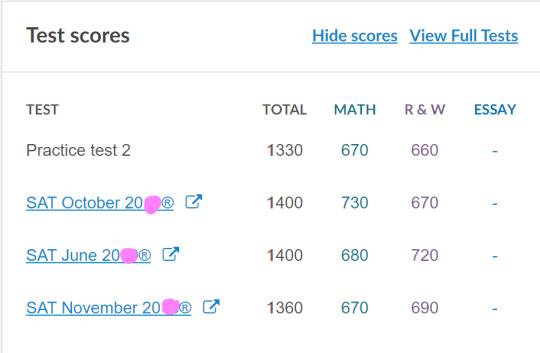
take practice tests - this helps you get familiar with the time constraint. khan academy has plenty!!
do a ton of SAT math practice questions - ideally, find a ton of questions used in prior SAT tests and just crank them out. the test's concepts are quite repetitive so if you just focus on the topics they usually test, you can master them
learn test-taking strategies - the SAT is multiple choice and has a tricky time constraint, so however you can save time will help. become good at using the process of elimination & other multiple choice test methods. you can find these sorts of tips online!
i hope this helps! know that you are completely capable of improving at math. i went from thinking i suck at it & doing poorly in math class to acing my calc courses & studying to enter a math-focused field. utilize your resources and figure out your best study style asap, and you WILL see improvements!
#pink academia princess#it girl#becoming that girl#that girl#wonyoungism#pink academia#pink blog#girl blogger#studyblr#studyspo#study motivation#glow up#motivation#self care#self improvement#dream girl#academia barbie#girlblogging#pink pilates girl#clean girl#self love#pink pilates princess#pink aesthetic#study blog#study aesthetic#university#student life#study tips#study tumblr#study techniques
410 notes
·
View notes
Text
Eureka: Investigative Urban Fantasy and Warhammer 40,000
youtube
Super interesting video by Questing Beast about some of the earliest ancestors to what would come to be known as a "tabletop roleplaying game," and the wargaming roots of TTRPGs as a whole.
I, the lead rules writer for Eureka: Investigative Urban Fantasy have been a Warhammer 40,000 player for years, and I love to brag about the way that Eureka as a TTRPG is in touch with its wargaming ancestry, both in ways you would and wouldn’t expect.
Playing Warhammer 40,000 has helped me get a good sense for dice probability, especially with regards to the D6s that Eureka uses, and is one of the things that gave me the idea for how Eureka handles firearms, particularly those with high rates of fire.
In Eureka, one single hit from a bullet is enough to incapacitate a human character, and automatic weapons can fire up to 10 or even 12 bullets in a single action. Each one of these bullets has the potential to be devastating if it hits.
Lots of factors affect the probably of a shot hitting a target, and most of them affect it by making the probability go down. Shooting 1-3 shots in a single turn will be rolled by the standard and highly predictable 2D6 that Eureka normally uses, but beyond that number, D12s are used for each shot, which not only makes the rolling of 4+ shots easier because you can scoop a bunch of D12s up in one hand and throw them all at once without having to keep distinct pairs together, but also makes each individual dice roll swingier, and slightly more likely to be a lower number.
Therefore, just like in real life, automatic weapons increase accuracy by increasing the volume of shots fired, increasing the chance that at least one of them will hit. Because any given 9mm fired is just as deadly as another, whether it’s fired by itself or as part of a large burst.
It was Warhammer 40,000’s mechanics that filter massive numbers of attacks through Accuracy, Wounding, and Armor Saves, when only a few of these attacks need to get through in order to be effective, that helped put me onto this idea.
There is also the fact that, despite primarily being a neo-noir Investigation game, Eureka’s rules also allow for players easily controlling multiple characters at a time and the potential for more militaristic scenarios, with each individual PC being super fragile with simple HP that is super easy to keep track of even across multiple character sheets.
Then, there are quite a few things about Eureka that one might not expect to have come from a wargame.
For one, we get a lot of praise for how each section of the Eureka rulebook is ended with a series of bulletpoints that summarize all the key rules and ideas in the paragraphs above. Well, I got the idea to do that from Warhammer 40,000 rulebooks.
There is also a mechanic in the past few editions of Warhammer 40,000 called “Command Points.” Command Points are a limited resource that can be spent to gain small advantages in the game, such as rerolling a single die, or activating the special abilities of certain units. There is a set of universal Command Point abilities that all factions share, as well as every faction having their own set of Command Point abilities unique only to them.
It is no coincidence that Eureka sports a very similar mechanic. You can find more information about this by reading "Investigation and the Eureka! System" in the Eureka prerelease rulebook, which you can download for free right here, but the short version is that as investigators investigate, they gain Eureka! Points. It can take an awful lot of investigating to gain a single Eureka! Point, which makes them a very scarce resource, but they can be spent on valuable bonuses, such as retroactively un-failing a previously failed Investigation check and getting the clue that would have been obtained from it (We call that a “Eureka! Moment!), or adding an extra D6 to an important roll, increasing the probability of success. Those are just the universal ones, however, that every PC has. Like Command Point abilities in Warhammer 40,000, there’s a set of universal ones, but most of them are exclusive.
Certain Traits unlock other Eureka! Point abilities exclusive to PCs who have those Traits, one of my favorite of which being the Eureka! Point ability that the Final Girl Trait unlocks, which allows spending a Eureka! Point to decrease the probably of success for an aggressive monster’s roll, helping simulate the trope of the “final girl” being able to just barely slip out from the jaws of death due to a sudden stroke of luck.
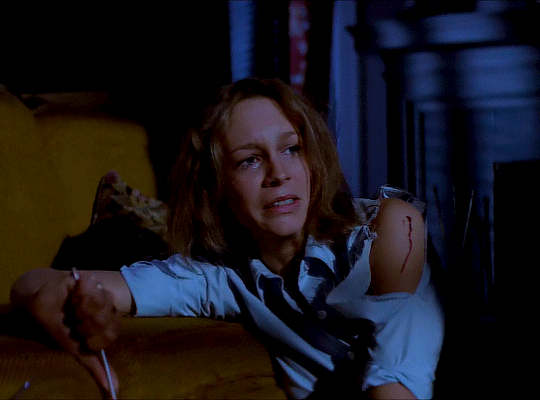
Another one of my favorites is a set of Eureka! Point abilities unlocked by the monster-exclusive Unkillable Trait. These abilities allow monsters, PC or NPC, to suddenly and unexpectedly return to the narrative after seemingly having been killed by losing all their HP. The more Eureka! Points spent, the sooner more immediately the monster can return.

If any of this sounds interesting to you, you can back our Kickstarter before it ends on May 10th and get a copy on release! We are also doing physical copies now!
Oh, and just one more thing..

Eureka Mention!
If you want to try before you buy, you can download a free demo of the prerelease version from our website or our itch.io page!
If you’re interested in a more updated and improved version of Eureka: Investigative Urban Fantasy than the free demo you got from our website, subscribe to our Patreon where we frequently roll our new updates for the prerelease version!
You can also support us on Ko-fi, or by checking out our merchandise!
Join our TTRPG Book Club At the time of writng this, Eureka: Investigative Urban Fantasy is the current game being played in the book club, and anyone who wants to participate in discussion, but can’t afford to make a contribution, will be given the most updated prerelease version for free! Plus it’s just a great place to discuss and play new TTRPGs you might not be able to otherwise!
We hope to see you there, and that you will help our dreams come true and launch our careers as indie TTRPG developers with a bang by getting us to our base goal and blowing those stretch goals out of the water, and fight back against WotC's monopoly on the entire hobby. Wish us luck.
#eureka: investigative urban fantasy#ttrpg#rpg#roleplaying#eureka#tabletop#coc#monsters#youtube#questing beast#dnd#dnd 5e#d&d 5e#5e#wargaming#40k#warhammer 40k#wh 40k#wh40k#imperial guard#warhammer#warhammer 40000#warhammer fantasy#warhammer40k#games workshop#space marines#ttrpgs#ttrpg community#ttrpg tumblr#ttrpg art
53 notes
·
View notes
Note
Hi! I’m writing a story about a lady with Down Syndrome. I was wondering if you knew where I can find any resources about Down Syndrome made by people who actually have it, or any organisations that would be good to follow. Any resources made by people with intellectual disability would be really helpful as well.
I read your post about this and it was really helpful so thank you, I’m going to use it as a starting point for my research.
If you’d like some context about the story she’s literally a lady in the 1920s who’s trying to get control of her family’s estate from her brother. Shes underestimated for her disabilities and for being a women but I’m trying to not focus so much on the discrimination and work more on giving her an interesting mystery to solve with the detective she hired. I’d like it to be a bit lighthearted. Anyway, as she’s a main character I really wanted to make sure I wrote her well. Thanks!
Hi!
There aren't many resources out there unfortunately, but there is a page on the UK Down Syndrome's Association's website where members with DS share their opinions on representation in TV and film! You can read it here.
For info on intellectual disability in general the best I can do is link some of my previous posts on it - there's close to nothing that's actually made by us unfortunately, everything that I was able to find is always made by someone who knows a person with ID at best. To be clear, not all of it is bad - I thought this interview (TW for abuse that happens in the movie's plot) about a movie starring actors with DS was pretty good - but it's still a sign that we aren't getting enough #OwnVoices representation. It's slowly changing though!
To learn more about DS I would probably recommend NDSS, it's one of the very few orgs that have people with Down Syndrome as board and team members (should be the bare minimum, but it unfortunately isn't). There's also information on things like preferred language and myths that often show up around Down Syndrome!
I'm not great with history, but in the 1920s she would be a subject to a lot more than just discrimination. Eugenics and institutionalization would definitely be present. Not sure what route you'll take there, but basically all the words around that time that she would be described with are currently considered slurs or pejoratives. The racist term for a person with Down Syndrome was officially used into the 60s, and the ableist one is still used legally in 2024. But if you want to skip past that, I think that's more than fine. You don't always have to aim for 100% historical accuracy, just be aware of the real history.
A detective story sounds very exciting! If you decide to publish it on Tumblr or other online site feel free to send me an ask with a link, I'd love to read it :-) !!
Thank you for the ask!
mod Sasza
I’m just popping in as a history fan for a couple bits of history notes — but again, like Sasza said, you don’t have to be 100% historically accurate if you don’t want to and if you don’t feel it’s necessary.
So, especially in the first half of the 1900s, a large part of disabled children, including children with Down Syndrome, were institutionalized very early in their life. Around this time the push that immorality caused disability was strong, and people were often convinced by doctors and professionals that the children’s needs would always be too much for them. Eugenicism was sort of reaching a peak around this time, as well—I would say it was at its most intense in the period of 1900-1940s.
Not all parents institutionalized their children, though. There was pressure to do so, but that doesn’t mean everyone fell victim to it. There wasn’t really any official support for parents who did this, and there weren’t official organizations for Down Syndrome. From my research, the current large DS organizations seem to have popped up in the 60s.
The term ‘Down Syndrome’ wasn’t in popular use until the 70s, and it wasn’t known that it’s caused by an extra chromosome until 1959.
Life expectancy in 1900-1920 for people born with Down Syndrome was 9 years old. Some of this could absolutely have been due to conditions in institutions, but likely even more relevant is that about 50% of people with DS are born with heart defects (also known as congenital heart disease) that can be fatal if not treated with surgery. Heart surgery wasn’t really feasible until the late 30s and early 40s. Another risk factor is a higher risk for infection, which isn’t easy to manage in a world that doesn’t yet have antibiotics.
I actually wanted to find pictures of adults with Down Syndrome pre-1940ish, though, to see real tangible evidence of adults being part of a community. First I found just one picture of a baby in 1925 on this Minnesota government website. But then I found a collection someone made of photos of both children and young adults, but they are not specifically dated. The first baby picture is from the 30s according to the poster!
Judging by the clothes I see people wearing in these photos, photo #4 (man with Down Syndrome in a suit next to a woman) seems to be from the 20s and photo #13 (young woman with Down Syndrome and very long hair) seems to be from about the 1910s. #18 (large family with a lot of sons, including one boy with Down Syndrome) could be from the 30s. Those three are the oldest people with DS in the photos, and they seem like young adults. A lot of these pictures show a community and aren’t just isolated kids, which I find nice.
It’s hard to find specific historical record of people with Down Syndrome from that period of time, but I wanted to show photos of real people in their communities to show, hey look! They were there, too!
Either way, I love detective stories and historical fiction and I’m glad you’re writing a story and that you care about your character’s portrayal but I totally know the feeling of that tricky balance between historical accuracy and modern acknowledgement that we should have been doing better.
— Mod Sparrow
#mod sasza#mod sparrow#intellectual disability representation#historical fiction#pretending that this answer isn't extremely late.. sorry#tw eugenics#tw ableism
53 notes
·
View notes
Text
tips and tricks on writing the kaibacorp environment
yes, this is pedantic. but more than that, YES i love small background details that lend a greater sense of accuracy and structure to a fictional world. this is not a complete or exhaustive list. (you are, of course, free to ignore and do whatever you want.)
Kaiba Corporation does not have "clients" - Kaiba doesn't do project work for hire; he's not an attorney or a consultant or an architect, he doesn't do billable hours. his meetings are most likely with his investors or business partners like Pegasus, with his board or c-suite executives (e.g., his chief technology officer, his chief legal officer, his chief human resources officer, etc.), various departmental meetings he might find interesting, and so on. Kaiba Corporation does have customers (the people who BUY the duel disk)/consumers (the people who USE the duel disk) but people who go to Kaiba Land will probably be referred to as visitors or guests. his primary responsibility, as the CEO of a publicly-traded corporation, is creating (financial) value for his shareholders and investors. (whether or not he gives a fuck about this responsibility is up to you.)
.
Unless it's something he is responsible for, like quarterly earnings calls and shareholder calls, Kaiba doesn't have to finish or work on reports; he has very few deadlines he himself has to meet; he is not reviewing anything except the most important documents. Even then, as the CEO/president, someone is probably writing the most important documents FOR him and then handing it over for him to present or read off later - which he might revise/adjust as he likes. Kaiba's workdays most likely consist mainly of meetings where people report on how things are going to him, setting business strategy with the c-suite, meeting with the more heavy-hitting investors (for the drama: 'we will withdraw our investments unless you do X,') and writing a bajillion emails.
.
Kaiba and Mokuba do not do any hiring or interviewing except for c-suite positions, because those are the people they work with most directly every day, and the people they most need to know are capable, qualified, and competent. they are way too busy to sit down with each one of the 38783 entry-level candidates Kaiba Corp combs through every day. for positions like their executive assistants or chief of staff, who might manage day-to-day schedules and do things like order lunch, an HR manager narrows the field to several qualified candidates and THEN Kaiba would make the final decision on who he wants to hire.
.
No one is getting past the front desk at a place like Kaiba Corp without an appointment or a badge. Any given visitor X has to check in at the front desk - the front desk receptionist will look them up in the appointment register, give them a badge, and then let them through. For the c-suite level, or anywhere Kaiba takes his most important/official meetings (like his own office), there might be a second lobby/second desk controlling access.
.
Some important dates on Kaiba's and Mokuba's calendars, when the pressure is on and they might be working much harder than usual (for the stress and the drama):
- end of quarter/EOQ (4x a year)
- end of fiscal year/EOFY. may not be aligned with calendar year - for example, the end of fiscal year might be march 30
- quarterly earnings call (4x a year)
- yearly earnings call. Kaiba himself, or someone very high up, like a c-suite exec or a VP, will lead these calls
- for things like duel disks, the months leading up to the holiday retail season (when they're preparing for greater demand on consumer product goods) and the holiday retail season itself
- for things like Kaiba Land, the summer vacation season, but largely dependent on where their parks ARE (southern california when the weather is nice year-round? tokyo when you have colder weather in the winter and slightly lower attendance? etc.)
.
VERY IMPORTANT: Kaiba has an office minifridge. imagine whatever you want in here. his executive assistants or office managers will keep this well-stocked.
.
Kaiba, or Mokuba, might lead the quarterly "all-hands meeting" - which is an internal meeting for all employees. for a place like kaibacorp, which KT said has ~2,000 employees, this might be held in a large hall/auditorium. things that might happen at the all-hands meeting: hiring updates (we hired 300 new people in the EMEA region), new mission statements, reiteration of core company values, sharing the company's progress on various OKRs/objectives & key results or key targets (duel disk 2.0 released this year to great acclaim and we made 34.5 billion dollars! suck it nintendo!), public (and potentially anonymous) question-and-answer session at the end, where Kaiba or Mokuba might field employee questions.
.
Kaiba or Mokuba might also be responsible for a weekly or monthly all-staff email keeping the entire company apprised of announcements, new partnerships, new business ventures, progress on whatever, new investments, etc. again, someone else (like a marketing manager) might write this for them and send it over for their review/adjustments, but the email officially comes from them. i personally like to imagine Kaiba writes some absolutely bonkers staff emails
#intern memo#this is not to say 'YOU'RE DOING IT WRONG' but instead 'if you want kaibacorp to feel real and accurate this may help'#enjoy. i welcome any additions or polite and friendly corrections
914 notes
·
View notes
Text
Lore: Common Phrases & Words
Accuracy Disclaimer & The Other Stuff
[tldr: D&D lore is a giant conflicting mess. Larian's lore is also a conflicting mess. You learn to take what you want and leave the rest]
Abeir-Toril
Why it's called the "Forgotten" Realms
History | Time & Festivals | Lexicon [1] [2]| Languages | Living in Faerûn [1] [?] | Notable Organisations | Magic | Baldurs Gate | Waterdeep | The Underdark | Geography and Human Cultures
--- WIP
Translating some earth phrases and words into their Faerûnian equivalents, plus some words specific to Faerûn; Here's how make friends and insult people in Faerûn. Also they have coffee, guitars and health insurance.
Also included a handful of Waterdhavian phrases and words.
-
Phrases and curses:
"Before all the gods..." - "I swear to god..."
"Well met" - default greeting; hello
"Well again" - greeting between acquaintances, business partners and friends.
"Well enough" - agreement; "ok", "that's fine with me"
“Never undress in a room with a window, a Harper may be near!” – "Be careful what you say, you don't know who's listening.
an interesting warning courtesy of Waterdhavian noble matrons.
"Haularake!" - The polite way to say "gods fucking damn it!" while in front of small children.
"Hrast!" - Damn it!
"Hrasted [thing]!" - Damned [thing]!
"[Deity]'s Blood" - eg "Cyric's Blood" Religious oath, rather like jesus christ. Contracted version of Blood of [deity]
I swear that I have seen "Umberlee's Teats" and "Cyric's Balls" said somewhere...
"Being an ox-haunch" - "Being an asshole"
"a breath" - a moment, a second; "wait a breath"
"A breath or two" - A moment/second; eg, "give me a breath or two to finish this."
"A goodly breath or three" - a minute. (Waiting for a notable amount of time, maybe ten minutes, but not that long.)
-- The dwarven variant is "but a little while"
-- Halflings call it a "long song"
"Counting like a halfling" - Being contrary just to be difficult
Most of the Realms counts on their fingers starting with the thumb, halflings do it the other way around.
"Naeth!", "Naed!" - Shit!
"Sabruin" - Fuck you, Fuck off.
"Lay down [good] coin" - "pay [a lot] for something"
“Resourceful as a bard”
"Life's better when you're not a frog." - "Avoid wizards."
“Sweet water and light laughter until next we meet” - A goodbye said between nobles. Technically an elven farewell, but human nobility decided it made them look cultured or something.
"Gone to Daggerford" - Waterdhavian phrase meaning to hide from the law by lying low outside the city
"Black as a black opal" - used to describe people who seem evil, but aren't really. (Especially if they'd dislike you saying so)
-
Faerûnian Lexicon:
Scorchkettle - a Karen.
Dining-house - a Restaurant
Glim - Eye-catching, beautiful, flashy
Kaeth - Coffee
~Fireswallow - a colloquial term for Coffee.
Yarting - acoustic guitar
Short scroll - Newspaper
Nandra - mediocre, meh.
Dael, daelin - a year, years
Saer - a term to address nobility when you don't know the proper title, or when they're children
Lackwit - Idiot
Roundskull - a prejudiced idiot who doesn't use their brain;
"often applied to local folk who sit drinking in their tavern displaying prejudices and repeating the words of their parents and grandparents, rather than making their own judgements about changing conditions around them, and new concepts, items, and customs."
Handfast - an engagement (to be married)
Handfasted - engaged
Goldnose, Goldnosed - Haughty. aka. "Has a stick up their ass."
Highnose - as above
Lackcoin - a derogatory term for those living in poverty.
Darkmorning - the early morning hours between midnight and sunrise
Highsun - Midday
the Eavestrough - the Gutter
a Bell - an Hour
a Candle - an Hour
Festhall - a type of establishment found in the Realms. A kind of fusion between an inn, laundromat, spa, night club, brothel and casino.
I'll explain these in another post. Suffice to day that BG3 is the most accurate portrayal of how damn horny this setting is that I've seen in a CRPG so far.
Blesséd - an elven loanword referring to immediate family.
Harhand - a labourer (minimum wage employee)
Healthshield - Health insurance, also known as a "healing-bond"
Fire-bond - Fire insurance
Rivvim - horny
Dawnfry - colloquial term for breakfast
A common breakfast, especially for travellers at camp, is to quickly fry the leftovers from last night's meal.
Highbite - colloquial term for lunch
Long variant is "Highsunfest."
Latebite, Evenfest - Dinner
Abbreviation of "Eveningfeast."
the Art - Magic
Lackspell - a weak, or novice wizard
Aloft - Upstairs; "she went aloft/upstairs."
High-coin - Expensive; or referring to a high paying job
Low-coin - Cheap; or paying minimum wage
Finework - intricate and valuable metalwork. Silverware and jewellery, for example
Finesmith - a smith who works with precious metals.
Hiresword - Mercenary
Stareyed - naïve
Shraehouse - a type of very small tavern
Fastmud - Cement
a Swords out - a brawl or violent argument
a Smur - a light, misty rain
Beast-men - common word for ogres
Big Folk - Term used by gnomes and halflings to refer to the other races
Longears - term for an elf
Little man - insult aimed at dwarves
a Blackstick - something like a grease pencil. A writing utility made of a stick of thorden (juniper) wood that can be sharpened on one end, which is then slightly charred and used to write with.
a Blandreth - a three legged cooking pot
a Boot - a Traveller
Dadacky - Rotten, Decayed
Heartstop - a Heart attack
Coin - Money; "I've got no coin until I get paid next week."
a Broad Cry - Headline of a newspaper/broadsheet
Holy hand - a temple guard
Tenday - equivalent of a week (10 days instead of 7)
Other, less commonly used terms include; an "eve," "hyrar", "ride" or a "domen".
the Elf day - the Weekend.
The tenth day of a tenday, sometimes a day of rest.
House storming - a burglary; home invasion
the Realms Below - the Underdark
a Black Robe - a magistrate [Waterdhavian dialect]
a Sun - a platinum coin [Waterdhavian]
a Dragon - a gold coin [Waterdhavian]
a Shard - a silver coin [Waterdhavian]
a Nib - a copper coin [Waterdhavian]
106 notes
·
View notes
Text
A while ago, I heard some piece of Apocrypha that Fallout 3 was originally set only 20 or so years after the Bombs dropped, and was later moved up in the timeline in order to accommodate familiar and marketable setting elements like the BOS, the Super Mutants, and so on. I forget where I heard this, and I don’t necessarily think it’s true. But I think it’s a really interesting lens to view a lot of the stories and characters through. You assume 20 years and suddenly it makes sense that someone like Moira is just now getting around to trying to codify survival advice; your choice to take the project seriously or half-ass it for personal gain then becomes a statement about the future of the world. You assume 20 years and suddenly it makes sense that they’d build Megaton in a crater, even if it had a live bomb in it, and haven’t yet had opportunity to move somewhere without a bomb. You assume 20 years and suddenly the Andale cannibals make a lot more sense; they aren’t LARPing pre-war life with eerie accuracy, they’re desperately play-acting at the lifestyle they thought they were going to have when they were kids or young adults, and the old guy they’ve got with them is the actual adult from that period who has the context to understand what they’re aping and how fucked it is. Tenpenny, Moriarity, and Dukov all make more sense now; their immigration doesn’t post date the war, they immigrated *before,* to escape the resource wars. Tenpenny Tower as a power bloc is an affluent settlement that *held out* rather than something that just happened to spring up centuries afterward. Agatha doesn’t have a tenuous connection to a famous musician who got sealed up in vault 92, she herself was a famous musician who got out before it all went to shit, and reuniting her with the violin is a decision to help something purely good from the old world last a little while longer. The Gary uprising was recent. The Lone Wanderer is as old as the new world. Lucas Simm’s sheriff getup, Three-Dogs anachronistic radio DJ routine, the whole thing with the Vampires, the Mechanist and the Antagonizer- it’s not passed-down half-remembered cultural knowledge, they’re doing bits as a coping mechanism, or because its still actively recognizable to a plurality. Little Lamplight and Big Town I think make a little more sense under this paradigm. Vault 112 is aping a world that recently died. I haven’t even touched how much more sense the main plot makes if people have only been dealing with the bad water for half a generation instead of 200 years. Going full Charlie Kelly this fine evening
#fallout 3#falloutposting#fallout#thoughts#meta#I just saw an hour long video essay on this general theory and I’m going to see how many of my points get brought up#but so much of this game works better if these people are dealing with something that happened to them personally
311 notes
·
View notes
Note
Is there a good and clear resource for figuring out what the hell modules do before you get them? Is there something I'm missing in the game's menu? Is there a website? googling gets me like gamepress which I do not trust and seems to be out of date anyways lmao
Gamepress is good for this, actually.
When it comes to Gamepress, keep this in mind: It’s a good repository for objective information. They list numbers, effects, material requirements and all such things with accuracy consistently. If it’s objective things like that, it’s a great resource with a good, functional, clean interface. Their Planner tool is also pretty convenient.
It’s when it comes to their tier lists, character and skill reviews, “should you roll on this banner?” pieces, and other such parts that you have to turn 360 degrees and moonwalk away because those are written by people that don’t play the same game you and I play.
86 notes
·
View notes
Text
Can I just take a few minutes to appreciate DD and his unwillingness to walk down a MBTI lane on the red carpet?
Just another example of why I love this man so damn much. He doesn't play games or get drawn into BS.
For those who weren't aware, the huge I and E at the end of the red carpet were meant to indicate 'Introverted' and 'Extroverted', part of the Myers-Briggs Type Indicator quackery that a lot of people seem to be taken in by. Stars, when walking the red carpet, were asked to walk down the lane indicated by the letter they identify with.
DD, being DD, walked right down the middle, and when asked by the hosts he said he deliberately didn't choose a lane.
I know a lot of fans are into the whole MBTI thing and I hate to be a wet blanket, but it really is unfounded pseudoscience with the primary aim of making money. It relies on what is known as 'The Barnum Effect' ("individuals give high accuracy ratings to descriptions of their personality that supposedly are tailored specifically to them, yet which are in fact vague and general enough to apply to a wide range of people*"). And let's face it, people are more gullible if you flatter them, and they'll believe flattering things said about them.
*From Encyclopedia Britannica's definition.
A lot of people see MBTI as good, harmless fun, but in reality it's baseless and even nefarious, and frequently used in ways that directly impact people's lives in negative ways. MBTI is used to make hiring decisions and to filter people in other consequential ways. These things also tend to be very racist, ablelist, classist, sexist, homophobic, etc.
Here are a few resources for those wanting to learn more about how utterly bullshit and harmful MBTI is:
They become dangerous tools: The dark side of personality tests
Why the Myers-Briggs test is meaningless, harmful and bad
The comforting pseudoscience of the MBTI
(BTW, not saying DD necessarily realizes MBTI is bullshit. It's likely he primarily just wants to avoid being pigeonholed. These kinds of things are often used by antis to say harmful things about him. But I wouldn't be surprised if he did think it was BS. He's a pretty straight-up guy who seems to have an aversion to things like this.)
54 notes
·
View notes
Note
Hello! Firstly, I wanted to thank you for the work you do on this blog. My mother's side is Greek and came to the US around WW2, and as I've gotten older and tried to learn about Greek culture, I've found that it's hard to find sources that aren't inundated with American pop-history. It's been really lovely being able to learn more from your blog for the past couple weeks.
Second is my question -- re: the pop history issue, I've noticed that people in the American queer community have a knack for "reclaiming" figures in history and mythology without always having an abundance of evidence for their claims. And like, I'm trans. Obviously the idea of some of things being true is cool, but it also feels disingenuous sometimes. Do you know of any good resources or books written by actual queer Greeks about either their contemporary experiences, or the history of queer people in Greece that isn't just conjecture?
Thank you again! Have a great day :)
Hello! It makes me so happy that you found my blog suitable to inform yourself on this part of your ethnic / cultural background. I hope the blog will keep being a useful source of information.
Because I am not going to lie, the way Greek history and culture, more like a snippet of it, has been almost forced into American pop culture is indeed through a disingenuous conjecture. Honestly, it's not so much a matter of accuracy per se. It's more that a niche piece of the culture has been taken and presented as almost the entirety of this culture, which eventually leads to tremendously false impressions, no matter how earnestly this niche part is explored. There is also the tendency to shape ambiguous evidence into unquestionable conviction.
I will attempt to explain why this can be a problem. Let's take the axiom - because it has reached the lengths of being treated as an axiom - "Ancient Greece was gay or Greece is gay or Greek culture was gay culture or Greece is / was a gay haven". If we really study Greek history and culture in its entirety, in a span of 3,500 years or more if we also take into acount the pre-Greek civilizations which eventually helped produce the Greek, while the existence of gay people (i.e Sappho), non-straight sexual practices (i.e erotic amphoras), ambiguous literary relationships (i.e Achilles & Patroclus?) and varied expressions of sexual desire observed especially in male deities are 100% well attested and recorded, they still comprise overall a very tiny part of the Greek civilization. Whereas it is often portrayed in western pop culture as the very essence of Greek civilization, exploration and studies of sexuality and gender identity throughout its history could amount to maybe a 1-5% of all documented knowledge associated to the Greek ethnos, its history and its legacy. Think of it this way; Greece happened to be in the epicenter of many formative achievements of humanity; spreading, contributing or improving on science, arts, extant religions and linguistics. It has been an area extremely ravaged by war because it has a very strategic position on the map. It has been in the core of three of the world's largest empires and it has been positively or negatively influential to all three (and the generator of one of them). There are so many things, struggles and achievements, to study and explore and draw from as part of your identity, that a constant foreign obsession and trivilization and sensualization of the sexual practices of people long gone eventually will start sounding disingenuous or lacking or even demeaning. Just like every individual aspires to be acknowledged and respected for more than just their sexual or gender identity (i.e skills, feelings, talents, achievements, personality), it is the exact same with culture and heritage. People want their culture to be appreciated in its entirety and not for a super niche area that is also exaggerated, if not exploited to serve foreign agendas, trends and marketing (because let's be real, not all have noble representation motives).
Okay, now I have to ask: do you know Greek? Because I can recommend you some sources, however Americans do not translate Greek works unless they are from 750 BC :)
Here's a quick heads-up:
The Greek society is a pseudopuritan society - one where people act like puritans when it comes to judging others but not at all when it comes to themselves. The gay male community has by far the biggest visibility nowadays. Lesbians come second. Other sexual orientations follow i.e bi, poly, pan. Gender (trans, non-binary, fluid etc) identities have less visibility. Asexuals also have near non-existent visibility. Most non-het non-cis people face problems in their families rather than in their studies or in urban environments. Non-cis people, especially AMAB people, might also face hardship in the workplace (like not getting easily hired).
Because the society is pseudopuritan, it tolerated and embraced and worshipped several LGBT people, except if they attempted to communicate their experience. Great composers and authors were openly gay and Greeks knew it and loved them, because they didn't explicitly involve their sexual identity in their work or because they didn't expose the pathogenies of the Greek society. If they had done that, the reception could have been different. Because of all these reasons, most of my sources will be from the perspective of gay cis men (the most visible LGBT+ community) and it will be mostly the great work and legacy they left behind, rather than their explicit documentation of the experience of living as LGBT+ in Greece.
LGBT poets and authors:
Constantine Cavafy (1863 - 1933), one of our best poets. This can be useful to you because his works are actually translated in English.
Napoleon Lapathiotis (1888 - 1944), openly gay in such times, he wrote a lot of erotic poetry.
Augoustos Korto (1979 - ), a married gay man, successful writer and activist, he has written extensively on the topics of death, depression, motherhood and love, often drawing from personal experience.
Kostas Tachtsis (1927 - 1988), poet, distinguished author and activist for gay rights during the Colonel dictatorship in the '70s. He suffered in his life and in his death as well. His murder has not been solved yet. He has written an autobiography and numerous novels with autobiographical elements. He was gay, either cross-dressing cis or maybe trans or non-cis (we don't know that back in time how exactly he identified) and had also been a sex worker for some time.
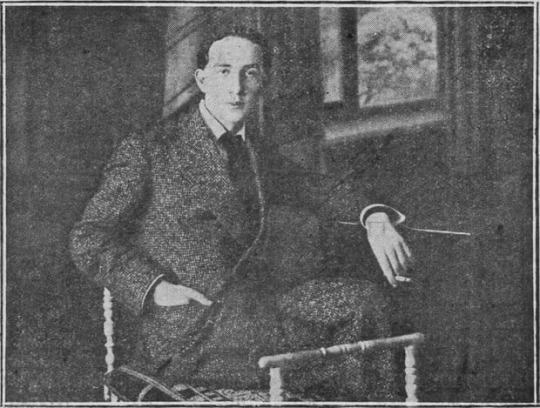
Napoleon Lapathiotis
Music:
Music won't give you direct information however it could be a way to bond with people you could connect with over similar experience.
Manos Hadjidakis (1925 - 1994), one of our two greatest composers and a rare genius, was openly yet "discreetly" gay, not out of shame but because privacy on all aspects of the human experience was absolutely essential and sacred to him. He was also an Oscar winner, although he would hate me for saying this (he threw his Oscar in the trashcan). Besides listening to his music, I would recommend watching interviews or listening to excerpts from his radio shows, because of the ease with which he could challenge anyone's intellectual capacity.
Sotiria Bellou (1921 - 1997), a lesbian or perhaps bisexual woman, she is worshipped for her unique voice, which became the ultimate symbol of the heavy-duty (underground at the time + now part of UNESCO's cultural heritage) rembetiko music genre.
TV Shows with representation:
Maestro in Blue on Netflix, a big part of the story is the romance of a gay couple suffering in oppressive families in the province
Milky Way, one of the main characters is pansexual and non-binary, and the actor is gay IRL. There is also a brief lesbian romance or a side narrative of supressed female homo- or bi- sexuality. This show will soon get in some international platform but I don't remember which one (not netflix), so keep it in mind.

Milky Way
YouTube:
There are a lot of LGBT+ people in Greek YouTube but my faves are:
ΚΡΙΜΑ by ZoePreTV: Zoe is a lesbian or bi herself (not sure but I know she's openly in a relationship with a woman) and she makes lengthy very informative quality podcasts with celebrities or everyday people, often belonging to marginalized groups, and they talk about their experiences. If you can understand Greek, this might be the best source for what you ask. I watched a fantastic episode with a trans woman and sex worker talking about her life. It is one of the greatest podcast episodes I have ever watched, hands down.
Eponimos. Zoe's best friend, who is an openly gay man, although he approaches matters of sexuality very delicately as he values his privacy a lot. He doesn't talk often about such matters (recently he did) but his channel is awesome for his lighthearted humour and the maturity of his positions. I love watching his content.
youtube
The podcast I mentioned.
LGBT+ Magazine: ANTIVIRUS. ANTIVIRUS also has this list with recent queer literature, featuring both Greek and foreign writers. Here is the link. It's in Greek though, like everything above...
Art: Yannis Tsarouhis (1910 - 1989), one of the most influential and successful Greek artists. He painted a variety of themes, he was inspired and developed Greek folk and Byzantine art, however he was also particularly notable for his love for the masculine physique and he established the classic image of the "Greek sailor" in art, theater and cinema internationally.
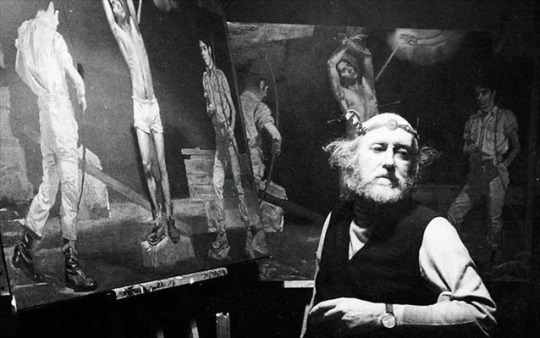
A great photo of Tsarouhis in his atelier.
I wouldn't consider myself well-versed in the topic, so I invite anyone who knows sources that could also ideally be easily accessible to the Anon, to give some recs in the comments. From my side, Anon, hopefully I was of any help.
#greece#europe#lgbt#lgbtq community#lgbtqia#queer community#representation#greek culture#discussion#anon#ask
51 notes
·
View notes
Text
The Locked Tomb Thoughts
So something occurred to me as I was scrolling my timeline and seeing fanart for The Locked Tomb scroll up my dash; New Roh and all the non-Empire human occupied planets are REALLY FREAKIN' ADVANCED as colony worlds go. Here we have the Empire which has actually stagnated, if not flat out reverted in a LOT of its developmental levels (specifically tech, but also governance, industry, most sciences, etc.) and some parts of the Empire have shortages on things that a supposedly advanced spacefaring civilization should just...have. Why the fuck are the Nine Houses using flimsy? That shit is hard to use and expensive to make and the production is torture on any environment and NOT RENEWABLE when you just gotta plant a few bamboo shoots in a field somewhere and next year you have more fuckin' bamboo than you can ever use so you cut a bunch of it down and pulp it and make friggin paper. The only thing you have to really worry about as far as the renewable-ness of the resource is keeping the soil fed...and if the Empire has LOTS of anything, it's corpses to turn into fertilizer. (Morbid, but true)
And yet, New Roh, before becoming a literal hellscape when Varun shows up, has so much infrastructure to spare that it becomes a refuge world when the Empire sends its walking WMDs called Lyctors after BoE.
Here's The Ninth House struggling to feed its people even though it's one of the most important houses in the system and meanwhile there's this "backwater" planet called New Roh that only starts to struggle to feed people when it takes on the escaped population of a DOZEN or so other planets.
New Roh had new construction, full industry, functioning space ports, agriculture, school systems, fast food, private and public transit...the Sixth House was having problems making babies.
This, more and more, makes me question the accuracy of Jod's account of Earth's final days in NtN, because a bunch of rich twats piling onto some custom space yachts with plans to just leave behind the most productive 99% managing to escape by the skin of their teeth and magically make not one but DOZENS of colony worlds that all become self-sustaining with rich, diverse cultures, multiple languages, healthy and robust economies, weapons manufacturers, black markets, etc.?
I don't care that it's been more than 10k years. If the ships that launched really only carried with them the likes of Elon Musk and Jeff Bezos and the people that they decided would be good for shining their shoes, then that colony would have crashed and burned HARD before the first 10 years was up, forget the next 9,990.
#tlt#the locked tomb#gideon the ninth#gideon the 9th#harrow the 9th#harrow the ninth#nona the 9th#nona the ninth#new roh#varun#varun the eater
61 notes
·
View notes
Note
Okay so, my mother works in maternity and being born stuff. Here is a thing I heard from her a LOT
Skin to skin contact between mom and baby is the MOST important thing, first thing out of the womb besides making sure the baby breathes and healthy. Heart to heart.
That way the baby gets healthier or something? Don’t remember but makes the baby work better, frees oxytocin or smth Idk.
Also, babies some get ATTITUDE as soon as they pop out. Like, drama queen attitude. But understandable because they are babies.
Yeah, I'd heard that about childbirth! Skin-to-skin contact is important for developmental growth. According to Google, it helps calm and relax both the mother and baby and regulates the baby's heart rate, breathing, and temperature.
I read somewhere once (I think it was in a health textbook back in high school) that aluminum foil is used to help keep newborn babies warm by swaddling them in it, since they lose heat faster than adults do. Considering they have aluminum blankets as part of an emergency survival/first aid piece to help prevent hypothermia, I can believe that!
Considering they go from being in a confined space to a big cold wide world, I'd be surprised if one didn't come out screaming! 😂 But from what I understand, this is a good thing, though I think I've heard it's possible that babies don't always cry or scream. Either that or I'm thinking of after they're born and have settled 🤔
Anyway, thanks for the information! It's good to have resources to reference for accuracy when it comes to the things we want to write, so I appreciate it! UvU
Also, your mom sounds like a wonderful woman, and I hope you both have a wonderful rest of the week!
#tw // childbirth#faun speaks#the writing references I had to look up to try and make this story possible 😂#also thank you because this made me finally find a word I couldn’t remember while I was looking up stuff for this response!
46 notes
·
View notes
Note
Question: what’s your source on the phytoestrogens? Bc the only times I’ve ever heard that claim, they all source back to this one study on sheep in like the 40s, which… well it’s not very well supported
(Although maybe you don’t care about that, which would be fair. These are fictional cats after all not clinical studies)
You're probably coming from Hbomberguy when he was specifically addressing lunkhead chuds, who pass around the claim that phytoestrogens lower human fertility and sex drive. The "soyboy" claim.
Human studies on the effects of phytoestrogens are pretty lacking overall, but what does exist doesn't back up that claim-- because humans don't graze on red clover in west australia like a sheep. What that means is that it doesn't impact human fertility the way a terrified conservative brain stem thinks it does.
(ESPECIALLY not in a plate of soybeans, which has significantly lower levels of phytoestrogen than red clover.)
But what it DOES do is bind to the estrogen receptors in your body (and acts as a really good antioxidant but that's neither here nor there) which can mean it can act AS estrogen... or as an antagonist.
If you want to know more (especially if you have a background in chemistry, this source talks a lot about the structural similarities between estrogen and phytoestrogen and the mechanism of action) then go dive into PHYTOESTROGENS IN FUNCTIONAL FOOD by Fatih Yildiz, which collects together many of the studies that we do have on the matter and omits controversial ones.
(Plus it's an easy read for such a science-heavy publication imo)
Though I have to stress that my HRT guide is, y'know, fake cats! Nothing in nature replaces modern medicine***, but I wanted to make a good resource for WC fans with trans cats who wanted a little bit of scientific accuracy, wanted to cut herbs that cast Liver Failure 1000 on felines, and could reasonably be found in a temperate environment
***= Except medicinal maggots. Medicinal maggots are literally magical. Nothing debrides necrotic tissue like green bottlefly larvae and as far as I'm concerned they're the closest thing to divinity we have on this earth. And medicinal leeches I love you leeches im so sorry that anyone has ever called you a pest you're cherubic angels and she doesnt deserve this </3
#Herb guide#Bone babble#Phytoestrogens#Btw I have wanted to remake that guide for a while since it actually predates most of my other work#That was like... the first research project I did for this blog#And in the next draft I'm cutting comfrey root entirely because I got more comfortable with speaking over the erins#The fact I get questioned on the phytoestrogen thing is a good sign for the site culture btw because#It shows that people are both a little educated on a conservative pseudoscience claim#And that they're questioning the information even in a for-fun cat project. After all I like. DO also care about scientific literacy#But it is funny to me that no one questions the comfrey LMAO#For context it's kind of like standing next to a nuclear reactor and then the audience points at a heavy object blocking a window and says-#''Hey isn't this a fire hazard?''#Like. Good that you're familiar with fire code! There is something even worse in the room with us <3
54 notes
·
View notes
Note
What makes this game unique from other mystery games?
Eureka has plenty that makes it stand out, from its tactical approach to combat, to its approach to the supernatural and non-restrictive character creation, but the thing that makes its investigation stand out from that of other investigation games is probably the Eureka! mechanic and its overall approach to failed investigation rolls*.
*An “investigation roll” in Eureka is any skill roll used to investigate, there is no “Investigate” skill, every investigation roll will use the skill on the character sheet that is most relevant to whatever evidence the investigator is investigating. So, in a way, every skill is the "investigation skill". For instance, you would use the Firearms skill to try and guess what calibre of bullet left these bullet holes, even though that is also the skill that is used for your accuracy when shooting guns, and how quickly you can reload.
Now, we don’t want to make a blanket statement because our dev team has not played every investigative TTRPG, but in the ones we have played, there have been a couple of consistent hang-ups. In Call of Cthulhu for example, when you miss a clue due to a bad roll, you’re just shit outta luck. This isn’t to say that Call of Cthulhu is a bad game, Eureka actually takes a lot of influence from certain parts of it, but sometimes a single bad roll at a crucial time can grind the adventure to a halt.
The Eureka! mechanic is (one of) our answers to this problem.
As the investigators fail investigation rolls*, they accumulate Investigation Points. (They actually accumulate Investigation Points even if they succeed, but you get way more of them for Failures). When a standard investigator accumulates 15 Investigation Points, they gain 1 Eureka! and their Investigation Points reset to 0. More powerful supernatural characters must accumulate more than 15 points before they get a Eureka!, but that’s a different post.
A Eureka! is a valuable resource that can be spent on a couple of different benefits, and one of those is to retroactively turn a single previous Failed investigation roll* into a Full Success, giving that investigator all the information they would have figured out if they had succeeded in the first place. This can be a significant mystery un-stumper when the party is stuck at a dead end, without the GM needed to artificially give them a hint—it’s not a free pity clue, they earned it by being thorough investigators up to this point even if they got some bad rolls.
This can act as a sort of “rubber band” mechanic, only springing the investigators forwards if they fall far enough behind to need it, so to speak, and only on their own terms, so they don’t feel like the GM just gave them the answer because they suck too much.
This doesn’t mean that Eureka: Investigative Urban Fantasy is an easy game for babies where the players never have to worry about failure, however. You only get 1 Eureka! for about every 5 Failures, and its combat can be pretty hardcore. Like Call of Cthulhu, the investigators are mostly just normal people with no special resistances to knives or bullets. If you shoot them once or twice, they die, and there’s no coming back. Not only does this fragility encourage a generally more investigative approach to dealing with threats, it can also be used to reward good mystery solving up to the point of the final confrontation. The Eureka! mechanic rewards investigators who have not needed to spend their Eureka!s on gaining epiphanies from previously failed rolls by the fact that they can also be spent to throw an extra die into a combat roll—or any other life-or-death roll, such as leaping to safety from a burning building or a Stealth roll when hiding from dozens of armed goons. 3D6 (dropping the lowest) can give a crucial boost to that one 2D6 roll that your character has to stake his life on.
Now, you don’t have to play a fragile normal human investigator, you have the option to play as a more robust investigator, like a vampire for instance, who can easily shrug off most forms of physical damage so long as they don’t overdo it all in one place and take some time to regenerate in between bouts of getting shot, but what those kinds of investigators gain in toughness and supernatural powers, they pay for with supernatural weaknesses. The vampire in the party may laugh in the face of small arms fire, but get knocked down a few pegs when faced with her greatest challenge yet: Figuring out how to get a direct and in-no-uncertain-terms invitation into the house without saying “I am a vampire, the owner has to invite me in.”
And no, she can’t just ask the rest of the party for help, if they find out she’s a real vampire, that’s nine-times-out-of-ten going to be much more shocking than whatever evidence they were going to find out inside, and possibly even implicate her in several other, much more gruesome murders that nobody ever managed to solve..
The Eureka! mechanic is also used in Eureka: Investigative Urban Fantasy’s équivalent to ‘leveling up’. At the end of an adventure, investigators can spend 2 Eureka!s to add 1 skill point to a skill. Eureka!s disappear after the mystery is solved, so you might as well use them if you have any left over, but if you’re saving them up by choosing not to spend them in a moment of real danger, that’s a bit of a risk, and could cost the investigator their life.
This also works as a bit of a “rubber band”, as investigators who increase their skills will fail less rolls, and thus gain fewer Eureka!s, slowing down their level-ups each time so they don’t shoot ahead of everybody else in the party without having to have a scaling system for experience points.
(Leveling up is an optional rule, however, and it is one that we in our group actually much prefer to play without, because we prefer more episodic or one-shot adventures where we frequently swap characters each time. Because skills have limits to how high they can go, a ‘level 0’ investigator can actually be just as capable as a ‘level 10’ investigator at any given thing, the ‘level 10’ investigator will just be good at more things.)
105 notes
·
View notes
Text
I'm dead tired
I was late, almost 2 weeks have passed since the deadline I told y'all about.
First of all, The Heat fried my brain, and my personal laptop, which had the completed next chapter of Doppelganger; so yeah, just one poof and all the effort went down the drain. I had to draw it again from scratch, half way done. I hope I can finish it today. See?

Folks, I can not stress this enough, BACK UP YOUR WORK REGULARLY, or you will regret it, it's going to hit you when you least expect it. Don't be like me, alright?
Second, I was very busy, cleaning up after the messes my old clients created in their own projects by using AI.
As an illustrator, let me give you one real advice: I don't care if you use AI to generate images for online clout, NEVER use it for your serious work, especially anything which requires high level of accuracy e.g. an instruction manual.
It's 90% useless, the only useful part is the color palette, nothing else. Those images looked quite good at first glance, but when you zoomed on details, they made no sense, like, unidentified parts that connected nowhere, etc. Even if you told the Ai bros to give you the source file, it was completely uneditable, or in other words, USELESS.
Then, you would still have to go back to your old human illustrator and ask for help anyway. That thing would have to be redrawn to have any uses at all. And you would be charged double the usual fee, because I would have to do a lot of research to make your AI messes become understandable. A huge waste of our time and resources which could be avoided if you gave that project to us artists in the first place.
I agreed to accept this fixing gig because I wanted to see first hand the quality of work AI can do, knowing your enemy and all that shit. After doing all these work? I think the money was not worth it.
So no more fixing AI images in the foreseeable future, too troublesome for my taste.
23 notes
·
View notes